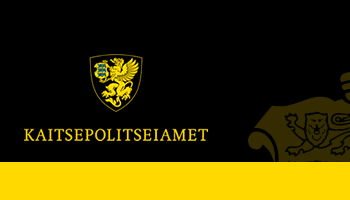KaPo has being tasked with national security, counterintelligence and large-scale cases of corruption. In releasing some of its operations to the public, it must maintain a delicate balance demanding integrity as well as astuteness.
Russia's aggression against Ukraine simplified the choice of colour design for the report's covers – blue/yellow. In addition the report gives special attention to non-governmental organizations (NGOs) with ties to Russia.
Moscow has established these organizations for use externally. Their aim is to advance three concepts: Estonia supports Nazism, Russian-speaking people suffer mass discrimination in Estonia, Estonia's international presence causes problems for others. Russia's intention on avoiding international isolation explains Russia reluctance to being more aggressive with Estonia in the past.
Arnold Sinisalu, the Director General of KaPo in his introduction to the 2014 review summarizes general observations KaPo has made with respect to Russia. The dangers associated with Vladimir Putin's regimes have now become more apparent both internationally and within Estonia itself. Russia's actions in Ukraine have revealed the real intent of Russia's ‘Compatriots Program'. Its politics of influence is to exploit the potential of Russian-speakers abroad thereby restoring the size of its empire.
The rhetoric of defence is used as a prelude to military aggression, dismissing the reality which is witnessed by the free press of the West. The Russian Federation itself is not home to just ‘the chosen' ethnic Russians. Other groups, lacking in any other homeland or any possibility of choosing one, require serious protection and the mechanisms for survival.
Another aspect of current reality is the fact nowhere has there been any incidents of violence or intimidation of Russians in foreign countries. The democratic countries to which Russians have immigrated provide them with greater security and freedom than Russia itself.
It's necessary for people to understand the real hidden essence of ‘soft power', which Russia claims to include the policy of the compatriots program. It is the seeming innocence of ‘soft power' which is used as cover for a very aggressive international stance. Putin's attempts to name Russian-speaking Estonian citizens as Russia's compatriots infringes on Estonia's constitutional order.
The most visible aspect of exposing the work of foreign covert services is through the prosecution of individuals charged with treason. The existence of foreign agents is unpleasant to acknowledge but their prevention is practically impossible.
In the area of cyber defence, Estonia must learn, and she still has much to learn and to teach. Partnerships in this area are necessary for progress.
International terrorism is something with which all have to cope and fight. The future activities of individuals who have left for Syria to fight are difficult to prognosticate. Even from Estonia some have left to join the jihadists in Syria. In this, Estonia also has to develop more comprehensive international cooperation to be proactive in the prevention of future problems.
Last year KaPo was successful in detecting attempts by members of organized crime to contact and influence members of democratically elected bodies. Elected officials were approached with the aim of influence peddling through financial compensation. KaPo continues to be involved in this field to forestall illegal activity.
In spite of some 70 years since the passing of the killing and mass burials of anti-Soviet fighters and civilians in the forests of Võru, KaPo is still investigating the circumstances in order to establish by whom the crimes were committed. KaPo continues this activity so that historical truth is not swept under the rug.
(To be continued.)
Laas Leivat




